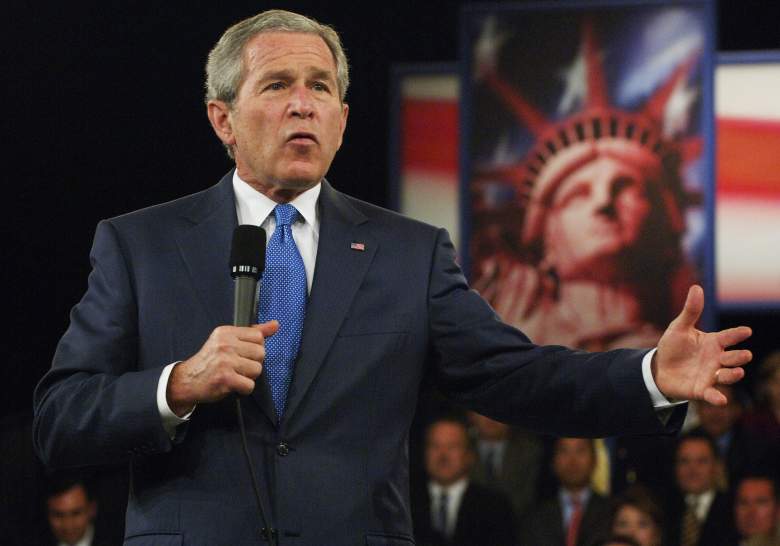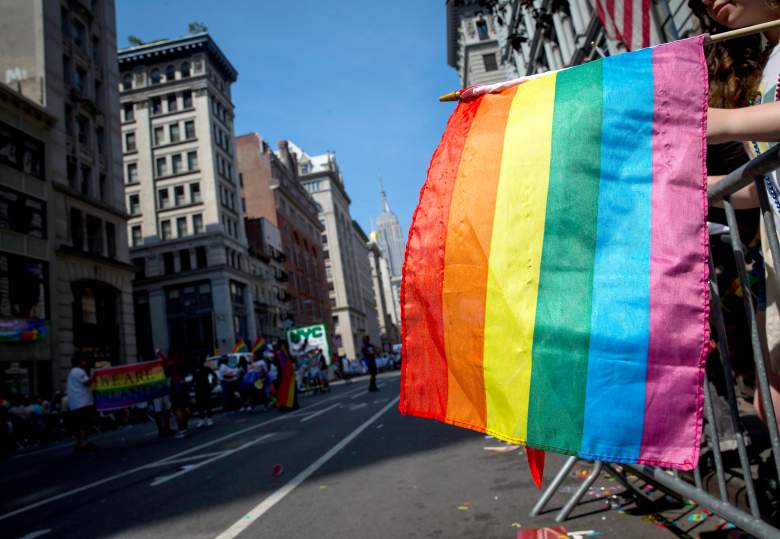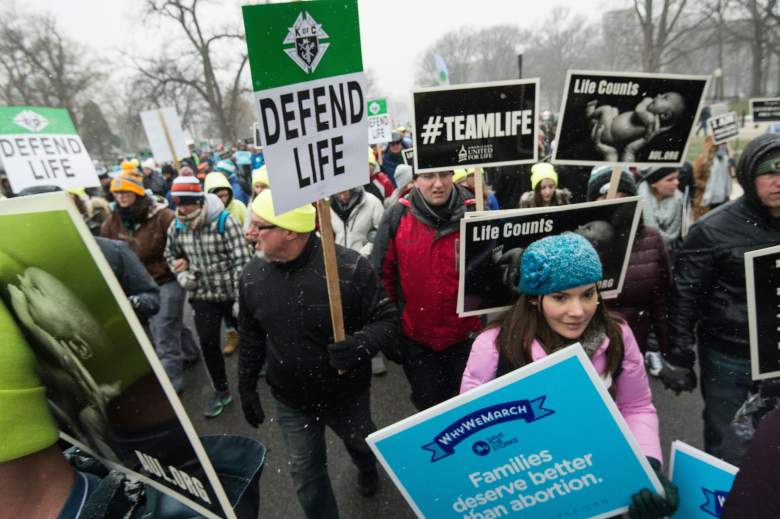
William Pryor is a judge for United States Court of Appeals for the Eleventh Circuit. (Getty)
William Pryor may become the United States’ next Supreme Court justice.
President-Elect Donald Trump enters the White House in January with the ability to appoint a Supreme Court justice who will replace Antonin Scalia. Trump released a list of potential nominees during the campaign, one of whom is William Pryor, a controversial figure who currently serves on the United States Court of Appeals for the Eleventh Circuit.
Here’s what you need to know about William Pryor.
1. He Was Appointed by George W. Bush

George W. Bush speaks at the Hyatt Regency Hotel in 2004. (Getty)
William Pryor was appointed to the United States Court of Appeals for the Eleventh Circuit by President George W. Bush in 2004. Pryor’s appointment had been blocked by Senate Democrats, but President Bush took advantage of a Congressional recess to appoint Pryor.
“His impressive record demonstrates his devotion to the rule of law and to treating all people equally under the law,” Bush said, according to The New York Times. The president also added that he was making use of a recess appointment because of Democratic obstructionism.
Senate Democrats were outraged by this, including Senator Patrick Leahy of Vermont.
“The president has divided the American people and the Senate with his controversial judicial nominees, and none is more controversial than Mr. Pryor,” Leahy said. “Judicial activists like Mr. Pryor are committed to an ideological agenda that puts corporate interests over the public’s interests and that would roll back the hard-won rights of consumers, minorities, women and Americans with disabilities.”
Pryor was a controversial pick due to his extremely conservative record; he has said that he wants to push the court to the right and fight the American Civil Liberties Union.
“For more than 30 years, the liberal agenda has been pushed through the courts, without a vote of either the people or their representatives,” Pryor once said. “The courts have imposed results on a wide range of issues, including racial quotas, school prayer, abortion and homosexual rights. Those issues belong in Congress and the state legislatures.”
2. He Is in Favor of Criminalizing Gay Sex

The gay pride parade is held in New York City in June 2016. (Getty)
William Pryor has had a history of being against LGBT rights, in 2003 arguing for a Texas law criminalizing gay sex.
Pryor filed a friend-of-the-court brief in the 2003 case of Lawrence v. Texas, and he said that “homosexual sodomy” is not a constitutional right and that LGBT Americans are not protected under the Equal Protection Clause, according to Lambda Legal. Pryor also compared gay sex to “polygamy, incest, pedophilia, prostitution, and adultery.”
Before that, Pryor argued against the decision in the case of Romer v. Evans, in which the court ruled against a Colorado amendment that denied LGBT individuals the right to seek protection from discrimination. Pryor said that this ruling was an example of political correctness.
3. He Supported a Law Preventing LGBT Parents From Adopting
Another controversial decisions of Pryor’s came when he helped to uphold a law that banned LGBT parents from adopting.
According to Advocate, the United States Court of Appeals for the Eleventh Circuit in 2004 declined to review the case of four gay men who could not adopt and whose case was previously ruled against. Pryor is the one who cast the decisive vote.
The case was eventually taken to the Supreme Court, but the court declined to hear the case without comment or published dissent, according to The Washington Post.
Florida’s ban on same-sex adoption eventually came to an end in 2010.
4. He Supported An Opinion Forbidding Anti-Transgender Discrimination
Surprisingly, although Pryor has a reputation of being anti-LGBT rights, he did support a pro-transgender decision in 2011.
In the case of Glenn v. Brumby, a transgender woman was told by her boss that her clothing was inappropriate, saying that she was a man dressed as a woman. The boss fired her because of this, and the woman sued, citing that the Equal Protection Clause prohibits sex discrimination.
The United States Court of Appeals for the Eleventh Circuit ruled that this was indeed sex discrimination that violated the Equal Protection Clause. As reported by Slate, while Pryor did not write the decision, he did endorse its conclusion.
“An individual cannot be punished because of his or her perceived gender-nonconformity,” the decision read. “Because these protections are afforded to everyone, they cannot be denied to a transgender individual.”
5. He Is Against Roe v. Wade

Anti-abortion demonstrators march to the US Supreme Court in Washington, DC, on January 22, 2016. (Getty)
Donald Trump has said that he wants to overturn Roe v. Wade, and so it should not be surprising that his potential Supreme Court nominee is opposed to the abortion law.
Pryor has said that Roe v. Wade is one of the worst examples of judicial activism in history, saying, “I will never forget Jan. 22, 1973, the day seven members of our highest court ripped the Constitution and ripped out the life of millions of unborn children.”
Pryor opposes abortion in the cases of rape and incest, though he supports it in some instances when the mother’s life is in danger. After the Supreme Court’s ruling in Planned Parenthood v. Casey, Pryor said that “the court preserved the worst abomination of constitutional law in our history: Roe v. Wade.”
Finally, Pryor says that he agrees with Antonin Scalia that “the Constitution says nothing about a right to abortion.”